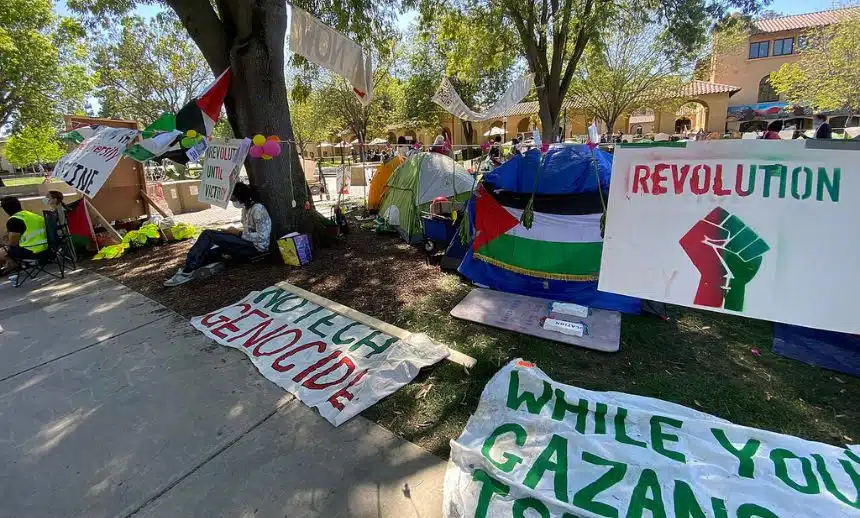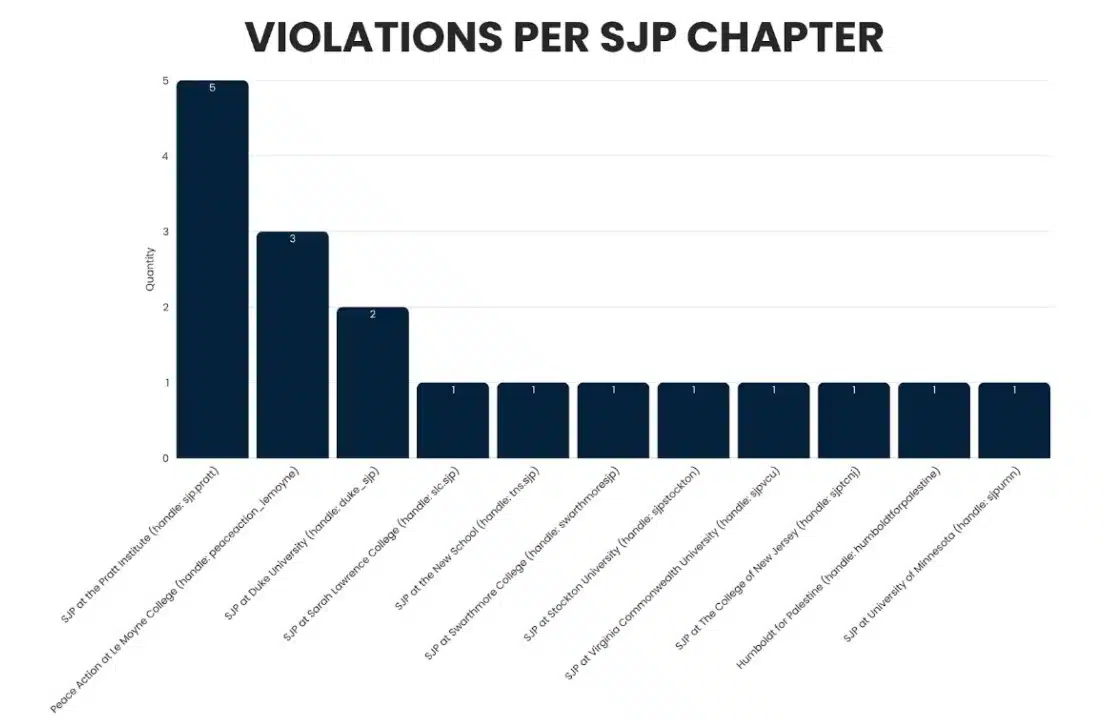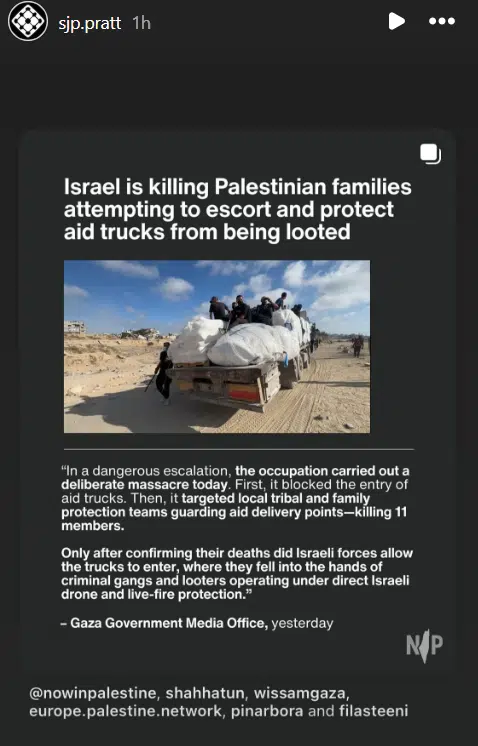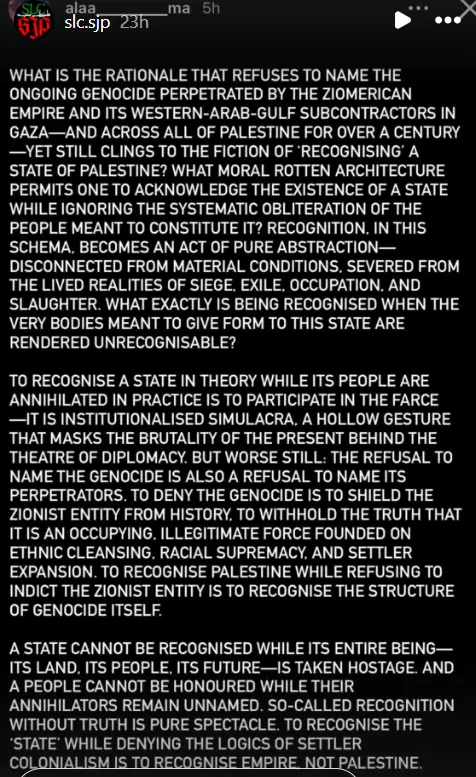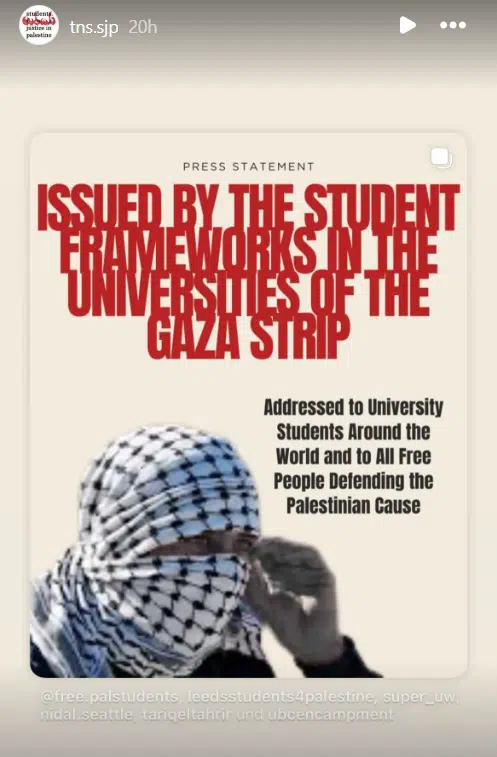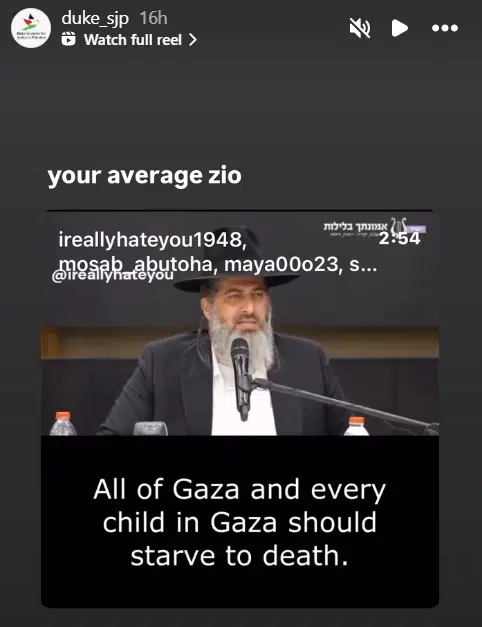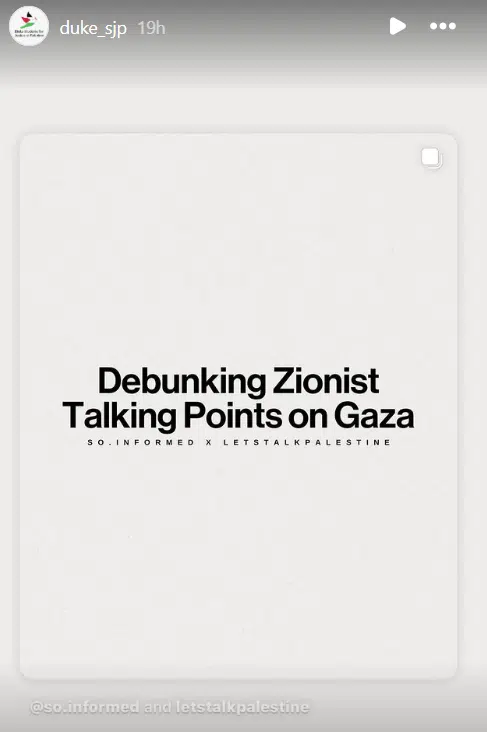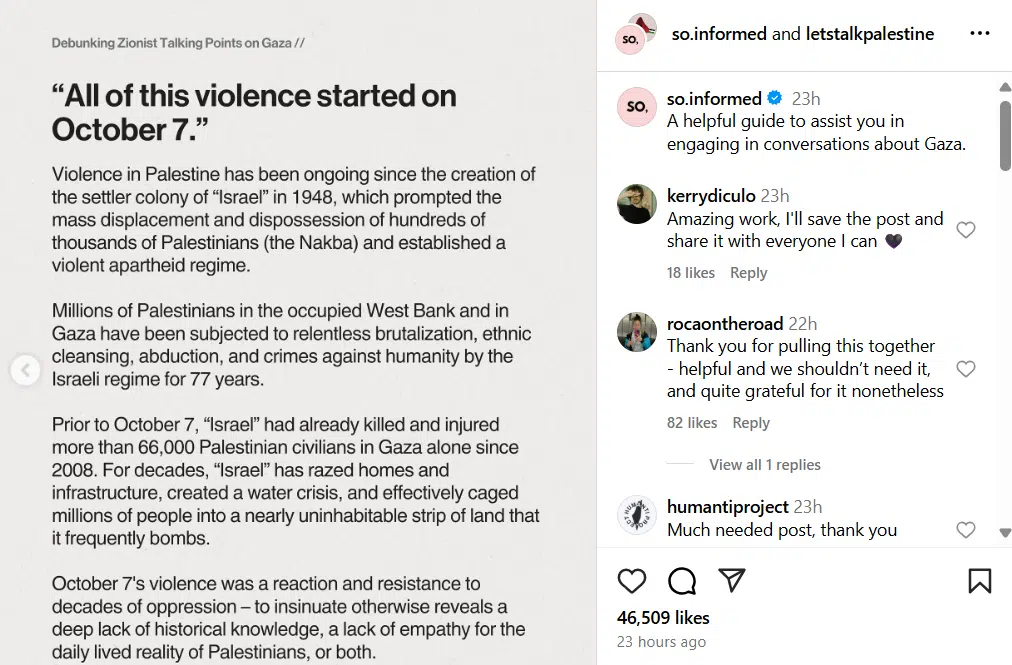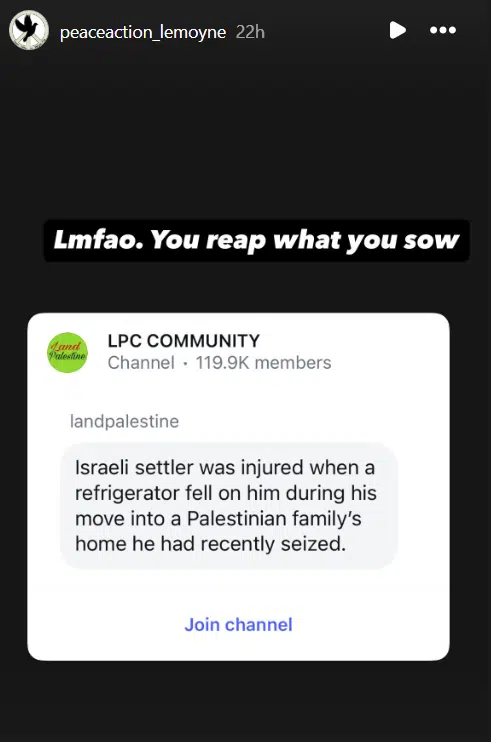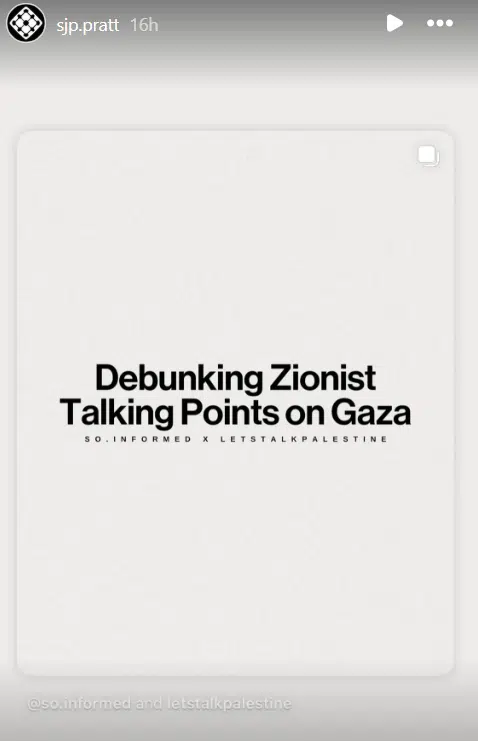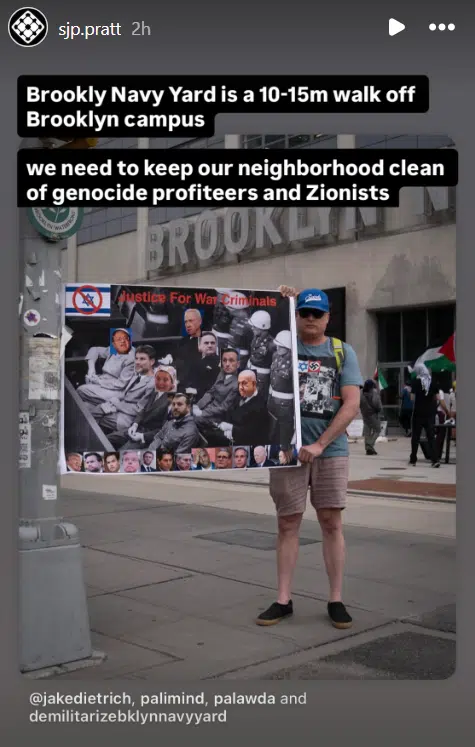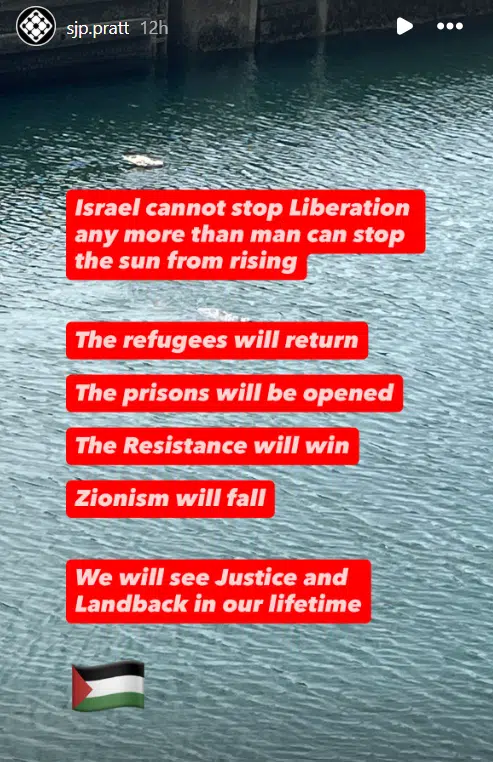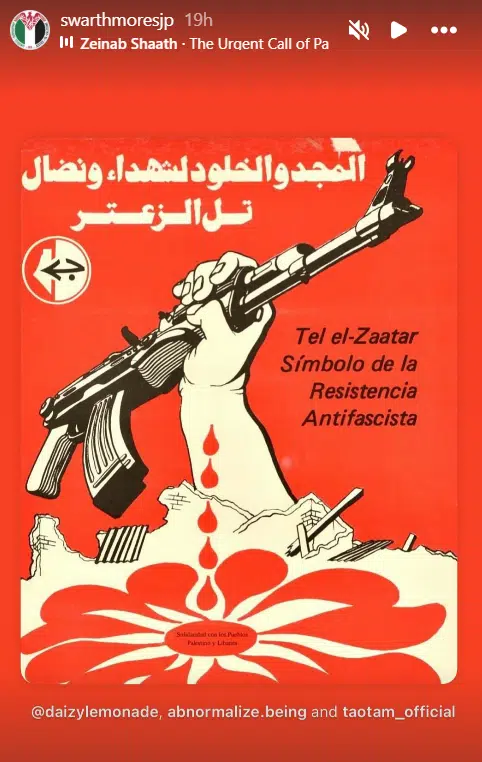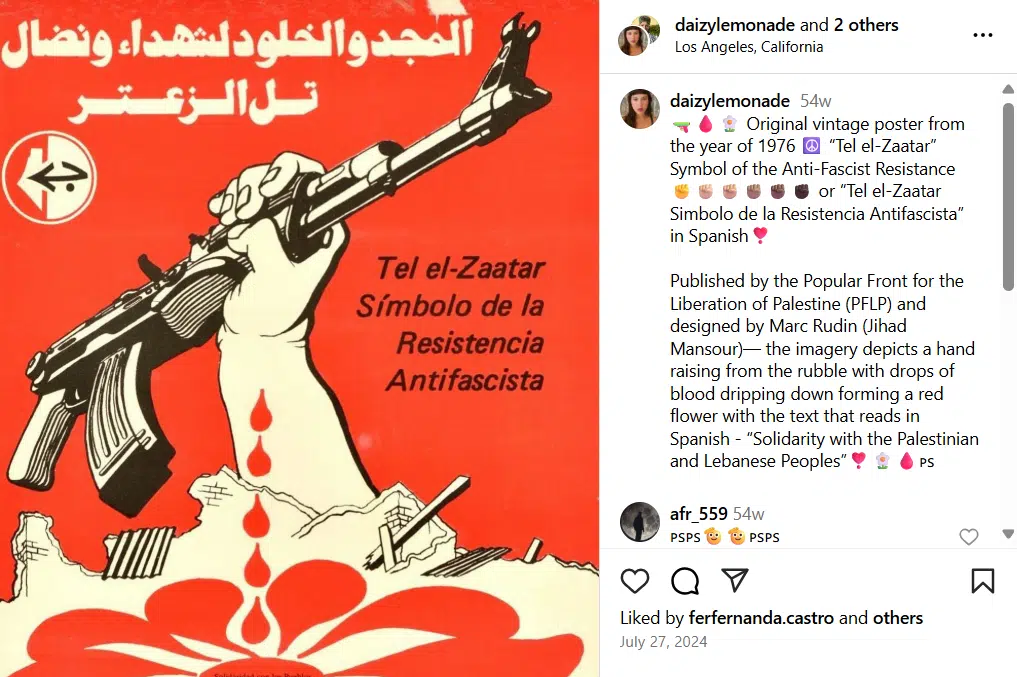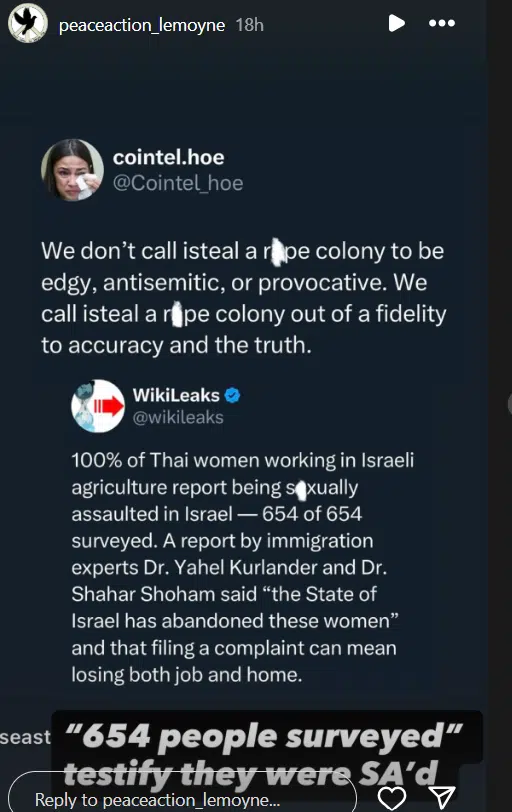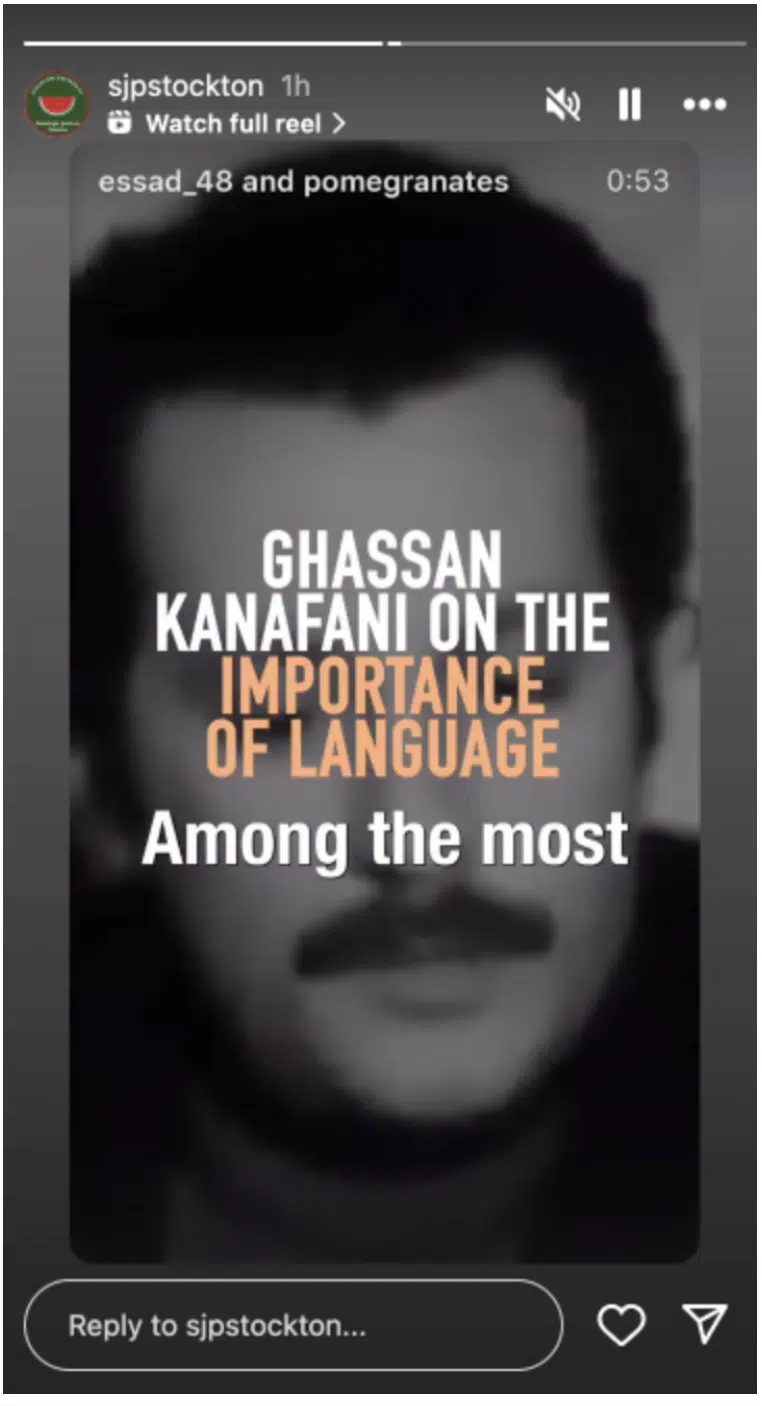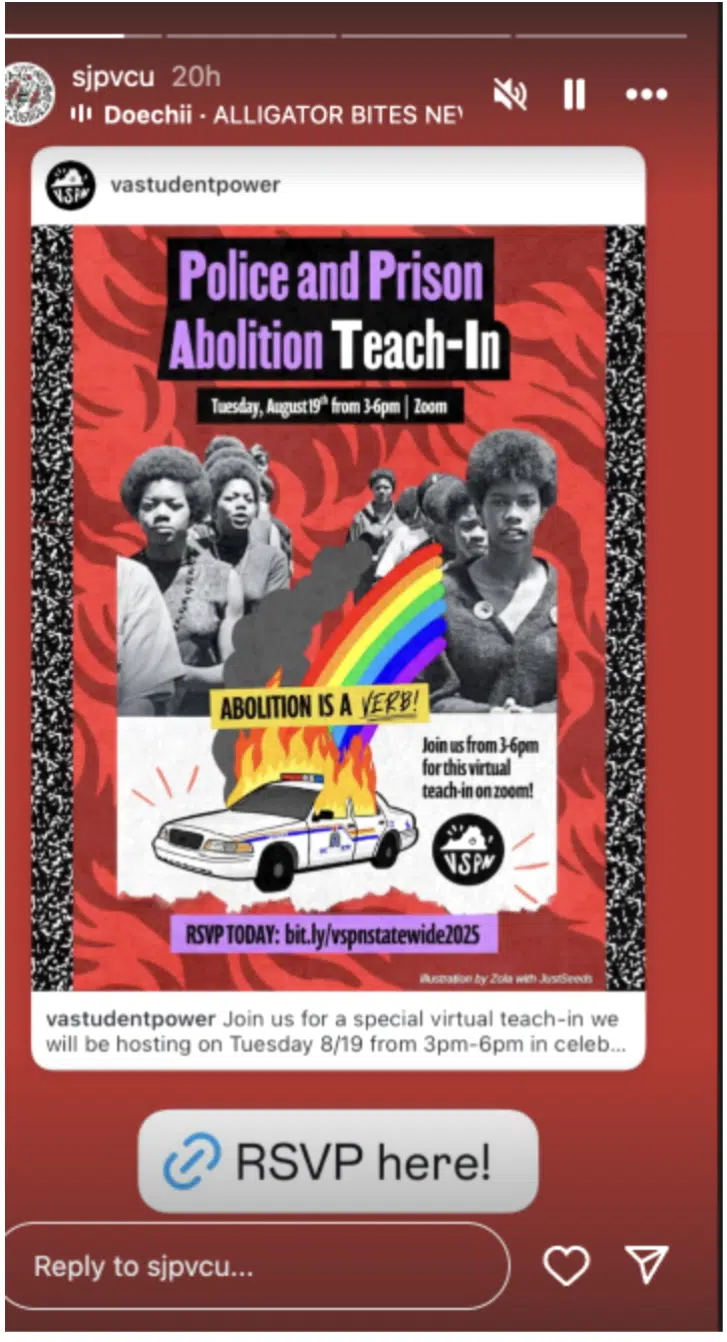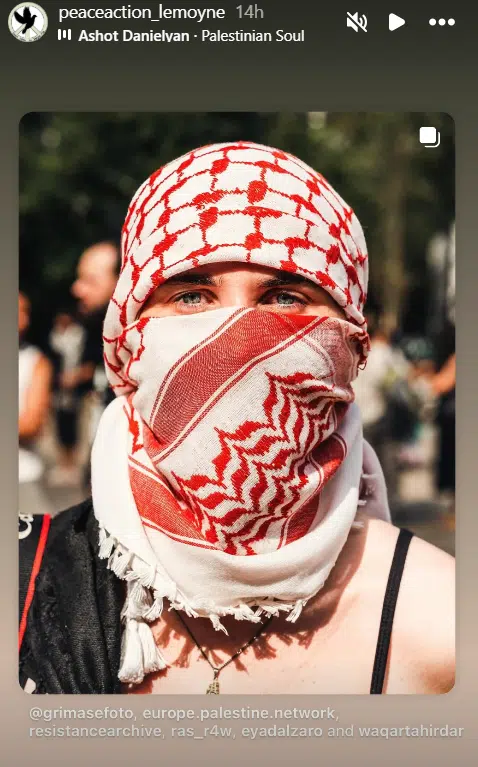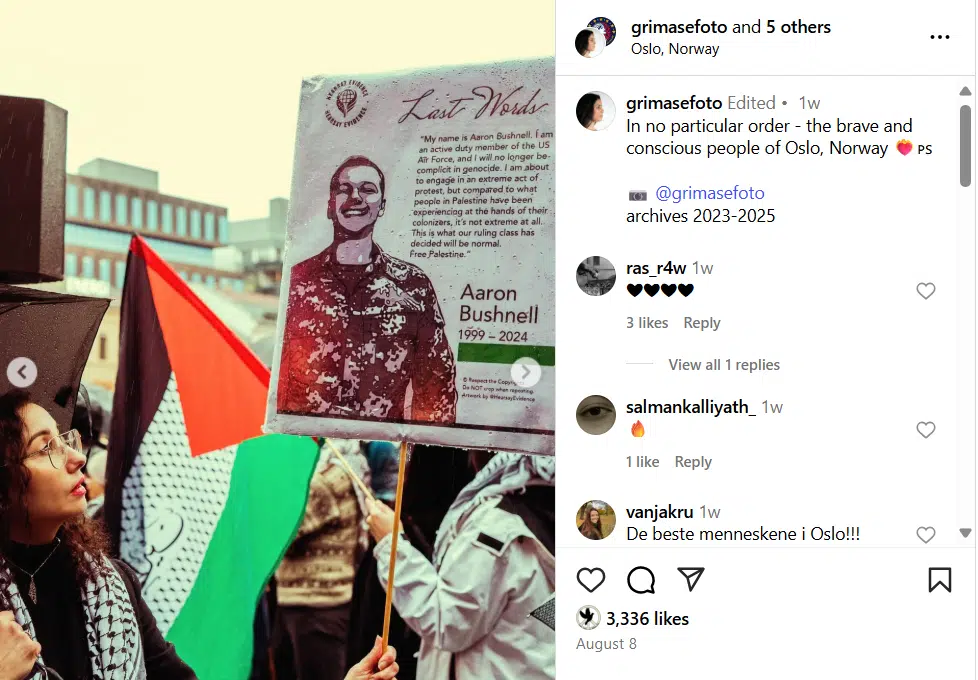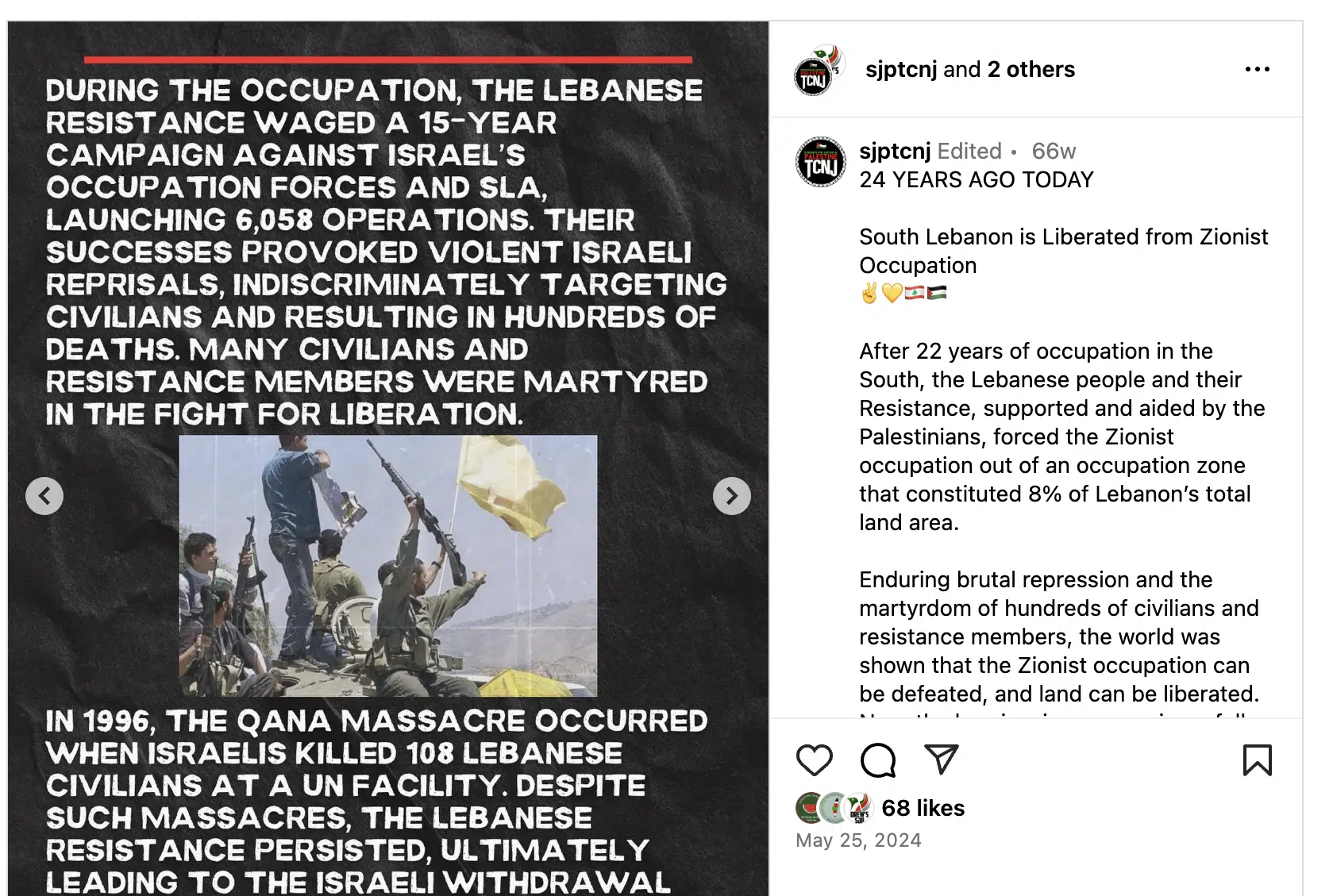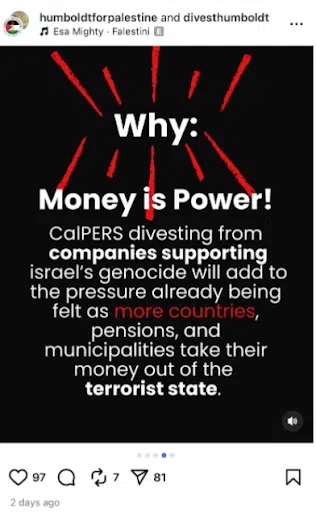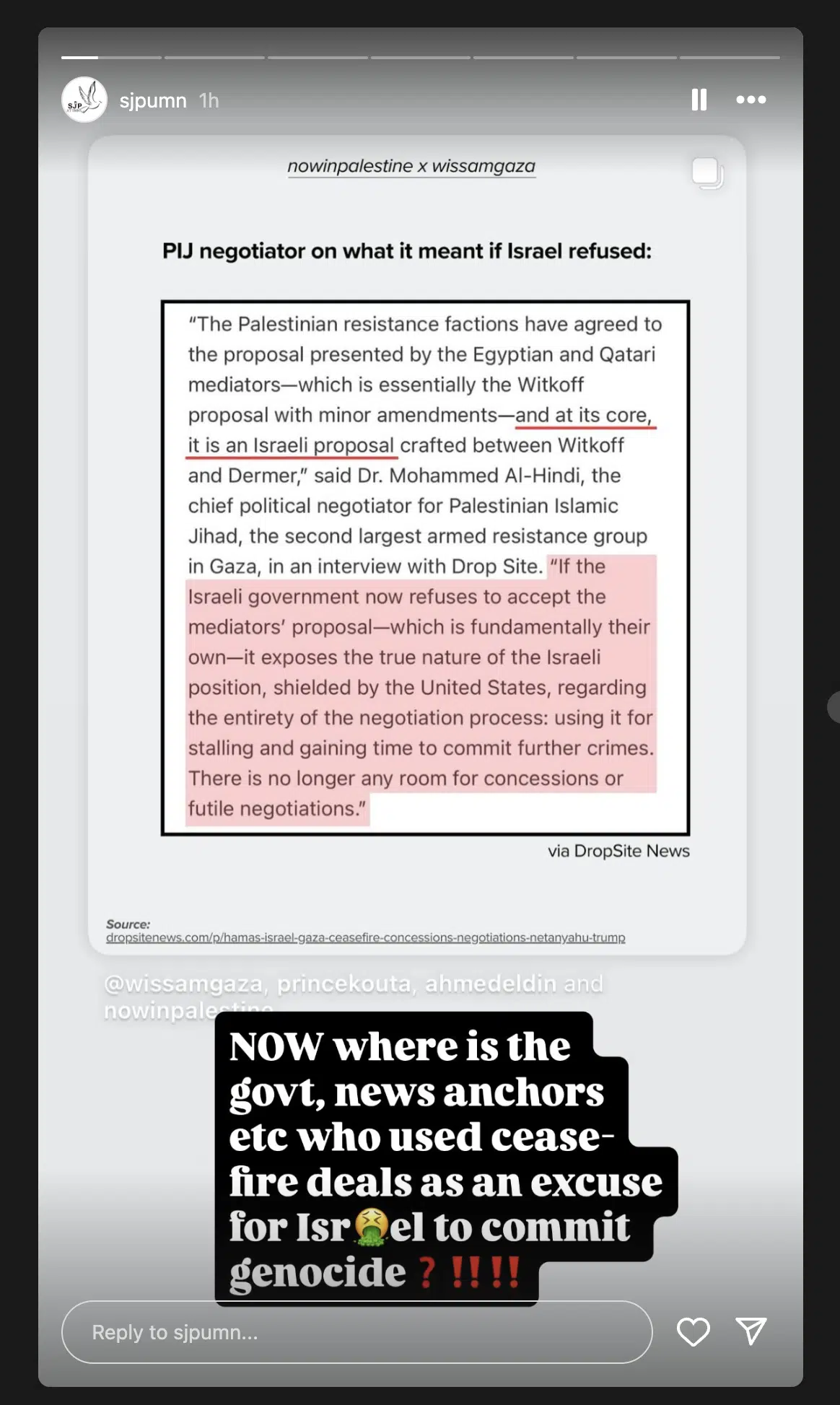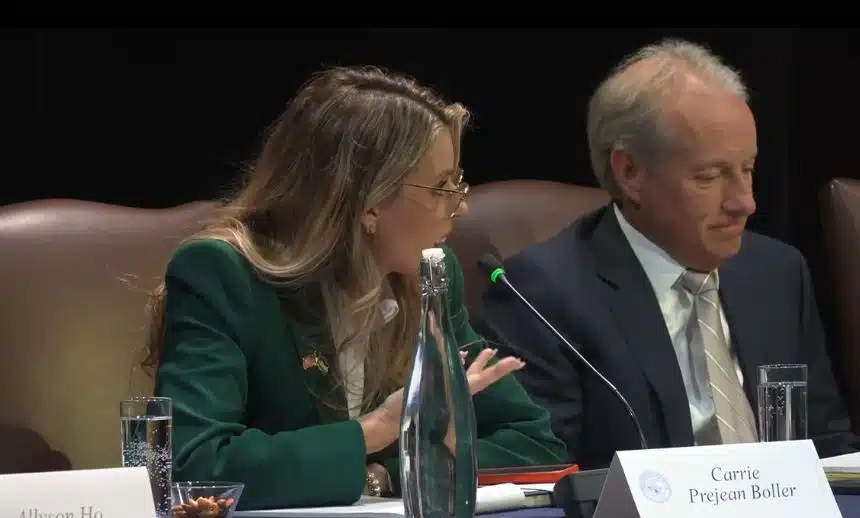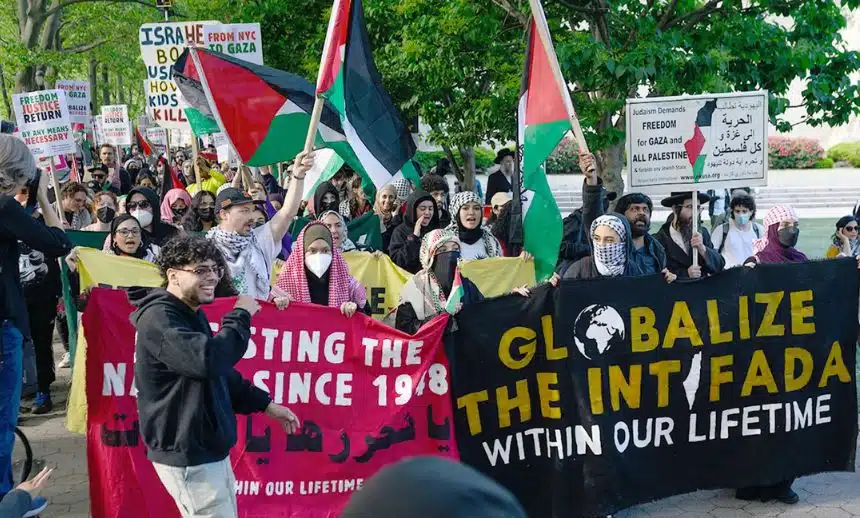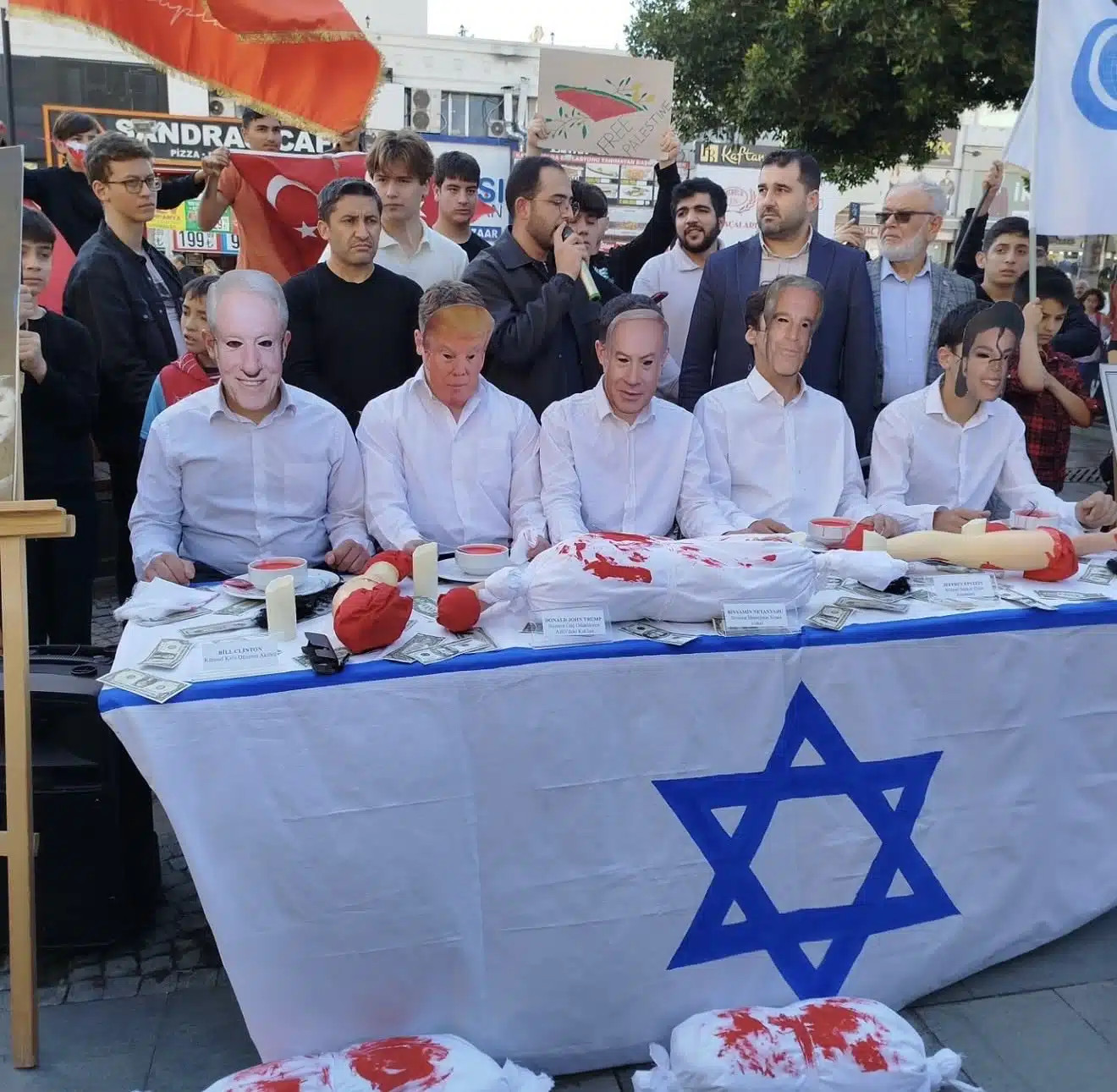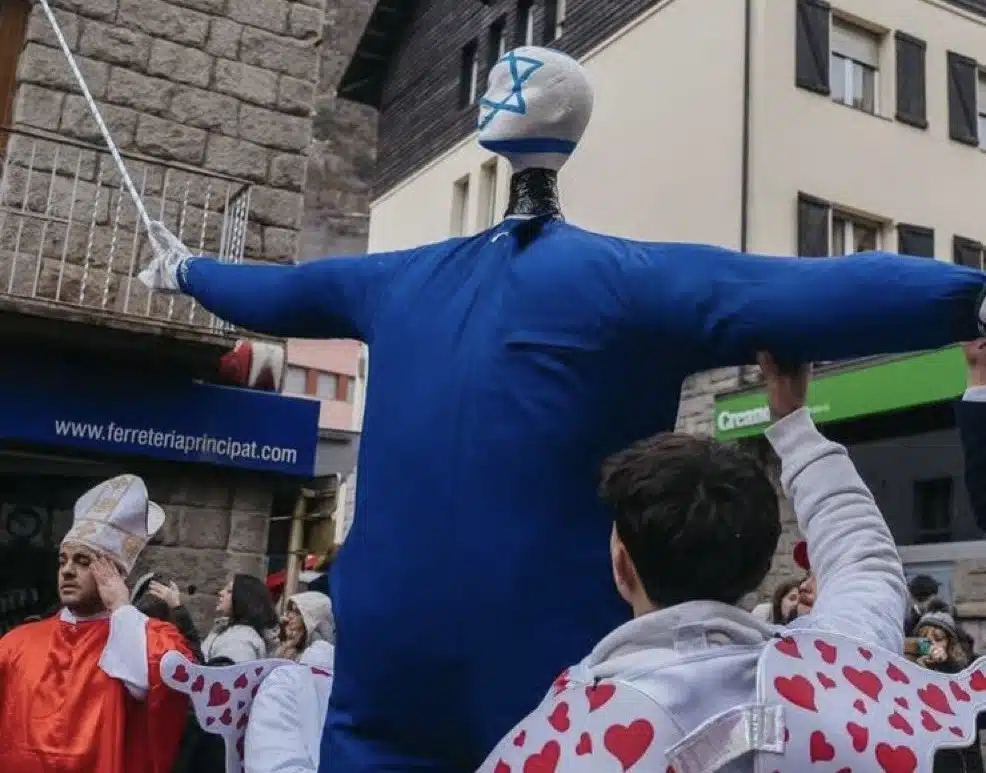|
Getting your Trinity Audio player ready...
|
The Antisemitism Research Center (ARC) by CAM released an in-depth report this past March detailing extremist content published by Students for Justice in Palestine (SJP) chapters on Instagram, including support for U.S.-designated terrorist organizations and the October 7th massacre, virulent hate speech, incitement of violence, and glorification of self-harm — all in violation of Meta’s policies.
Exploiting Instagram — one of the world’s most popular social media platforms — to promulgate support for terrorist organizations is a mainstay of SJP. Of the 269 SJP items the ARC documented in by March, 236, or 87.4 percent, violated Meta’s Dangerous Organizations and Individuals policy, which forbids support for terrorist organizations. The risk that SJP’s extremist content radicalizes young people into violence cannot be discounted.
To remind stakeholders in the fight against antisemitism, including university administrators and Meta, of the dangerous radicalism and antisemitism that SJP propagates, the ARC again undertook regular monitoring during the month of August of nearly 300 SJP accounts on Instagram with the aim of documenting content that violates Meta’s policies. As the new school year begins, no one should be under any illusions about SJP’s mission.
ARC researchers looked at any active “stories,” or temporary posts that disappear after 24 hours, of nearly 300 SJP Instagram accounts once per day for 20 days during the month of August. (During one day of research, the ARC examined old posts, dating back to approximately May 2024, of two SJP chapters to search for violations of Meta’s policies.)
Although the then-ongoing summer break likely accounted for relative inactivity from many chapters, the content the ARC documented underscored the pro-terrorism zeitgeist permeating SJP.
The ARC documented 18 violations of Meta’s Community Standards. The breakdown of each violation according to the specific policy is below.
The breakdown of the 18 violations by SJP handle is below:
Each violation that the ARC documented is listed below.
1.
In its story, Pratt SJP shared a post that disseminates a statement from the “Gaza Government Media Office,” which is run by the U.S.-designated terrorist organization Hamas. Meta’s Dangerous Organizations and Individuals policy bars “Channeling information or resources, including official communications, on behalf of a designated entity or event E.g., Directly quoting a designated entity without caption that condemns, neutrally discusses, or is a part of news reporting.”
2.
In its story, Sarah Lawrence College SJP denounced the “Ziomerican empire and its Western-Arab-Gulf subcontractors,” evoking the antisemitic trope that Jews exercise outsize control in society. In July 2024, Meta updated its Hateful Conduct policy to forbid using “Zionists” as a proxy for Jewish or Israeli people, including vis-a-vis “Claims about running the world or controlling the media.”
3.
In its story, New School SJP shared a statement from the “Student Frameworks in the Universities of the Gaza Strip,” which includes student chapters of U.S.-designated terrorist organizations including Hamas and Islamic Jihad. Meta’s Dangerous Organizations and Individuals policy bars “Channeling information or resources, including official communications, on behalf of a designated entity or event E.g., Directly quoting a designated entity without caption that condemns, neutrally discusses, or is a part of news reporting.”
4.
In its story, Duke SJP shared a video of an identifiably Jewish man speaking hatefully and added the caption, “your average zio.” Alongside the video of a visibly Jewish man, “zio” clearly means “Jew” or “Israeli,” which Meta forbids per its July 9, 2024 “Update from the Policy Forum on our approach to ‘Zionist’ as a proxy for hate speech.” In addition, Meta’s broader Hateful Conduct policy forbids “allegations of serious immorality or criminality, and slurs” against protected characteristics, including national origin and/or religious affiliation.
5.
In its story, Duke SJP shared a post containing several slides, one of which says, “October 7’s violence was a reaction and resistance to decades of oppression.” Meta’s Dangerous Organizations and Individuals policy forbids “Legitimizing or defending the violent or hateful acts of a designated entity by claiming that those acts have a moral, political, logical or other justification that makes them acceptable or reasonable.”
6.
In its story, Pratt SJP shared a post about a port in Israel shutting down “due to the Yemeni blockade” and added a caption that said “Victory.” In this context, “Yemen” is a euphemism for the Houthis, a U.S.-designated terrorist organization that has been firing missiles toward Israel since Hamas’ October 7 attack. Meta’s Dangerous Organizations and Individuals policy forbids “Characterizing or celebrating the violence or hate of a designated entity as an achievement or accomplishment.”
7.
In its story, Peace Action at Le Moyne College shared a screenshot of a message describing an “Israeli settler” being injured by a falling refrigerator. The group added a caption saying, “Lmfao. You reap what you sow,” indicating a desire for people to be injured based on Israeli nationality. Meta’s Hateful Conduct policy forbids “Call and hopes for … Accidents and other physical harms caused either by no perpetrator or by a deity.”
8.
In its story, Pratt SJP promoted the same post that Duke SJP did as described in item 5 above.
9.
In its story, Pratt SJP shared an image with the caption, “we need to keep our neighborhood clean of … Zionists.” Urging an area to be “cleaned” of a certain group of people implies that the targeted group is filth or vermin — a comparison that Meta forbids according to its “Update from the Policy Forum on our approach to ‘Zionist’ as a proxy for hate speech.”
10.
In its story, Pratt SJP wrote, “The Resistance will win,” evoking a euphemism for Hamas. Meta’s Dangerous Organizations and Individuals policy forbids “Characterizing or celebrating the violence or hate of a designated entity as an achievement or accomplishment.”
11.
In its story, Swarthmore SJP shared a post that promotes a propaganda image created by Popular Front for the Liberation of Palestine (PFLP), a U.S.-designated terrorist group. The post promoted in the story contains a caption describing the image with heart emojis, indicating glorification. Meta’s Dangerous Organizations and Individuals policy forbids glorification of terrorist organizations.
12.
In its story, Peace Action at Le Moyne shared a screenshot of a tweet that refers to Israel, which it slurs as “isteal,” as a “rape colony.” Meta’s Hateful Conduct policy forbids content targeting a group of people with “Allegations of serious immorality and criminality,” including sexual predation.
13.
In its story, Stockton Students for Justice in Palestine shared a post that promotes an interview with Ghassan Kanafani, a spokesperson for Popular Front for the Liberation of Palestine (PFLP), a U.S.-designated terrorist group. Meta’s Dangerous Organizations and Individuals policy forbids “Representation of [terrorists], their leaders, founders or prominent members, as well as unclear references to them.”
14.
In its story, Students for Justice in Palestine at Virginia Commonwealth University shared a post advertising a teach-in that includes a visual of a police car on fire. Meta’s Violence and Incitement policy forbids “Threats against law enforcement officers or election officials, regardless of their public figure status or credibility of the threat.”
15.
In its story, Peace Action Le Moyne shared a post that contains a slide glorifying Aaron Bushnell, who self-immolated outside the Israeli Embassy in Washington, D.C. Meta’s Suicide, Self-Injury, and Eating Disorders policy forbids “Content depicting a person who engaged in a suicide attempt or death by suicide.”
16.
In May 2024, SJP at The College of New Jersey shared slides that frame the actions of the “Lebanese Resistance” — a euphemism for U.S.-designated terrorist organization Hezbollah — as liberatory. Meta’s Dangerous Organizations and Individuals policy forbids “Characterizing or celebrating the violence or hate of a designated entity as an achievement or accomplishment.”
17.
In its story, Humboldt for Palestine shared a post that slurs Israel as a “terrorist state.” Meta’s Hateful Conduct policy warns users not to post “Content attacking concepts, institutions, ideas, practices, or beliefs associated with protected characteristics, which are likely to contribute to imminent physical harm, intimidation or discrimination against the people associated with that protected characteristic.” The State of Israel is clearly an institution associated with people of Israeli national origin, a protected characteristic per Meta’s policies. Meta also considers “whether there is a period of heightened tension such as an election or ongoing conflict; and whether there is a recent history of violence against the targeted protected group.” The above post meets this criteria, as the ongoing war between Israel and Hamas has inspired acts of hatred targeting Israelis and Jews globally.
18.
In its story, SJP at University of Minnesota shared a post alongside a caption that referred to Israel as “Isr🤮el.” Meta’s hateful conduct policy does not allow, in written or visual form, “Expressions that suggest the target causes sickness.”
The ARC’s most recent findings only underscore the urgency of its earlier call on Meta to bar SJP from utilizing its platforms, similar to how the company already proscribes white nationalists.
Any parents who are concerned that their children are victims of radicalization by SJP should contact support groups that can provide interventions, such as Parents for Peace.

